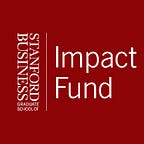Stanford GSB Impact Fund Backs AlgiKnit: The Future of Clean Fashion
The Stanford Impact Fund is excited to announce that we have invested in AlgiKnit via the 2021 Seed II round, joining a strong syndicate of investors including lead investor Horizons Ventures. AlgiKnit is the winner of the Postcode Lottery Green Challenge and the first international BioDesign Competition. It is also an alumni of SOSV and Fashion for Good.
Fashion “Be-wear”: Addressing One of the Worst Polluters on Earth
The fashion industry is currently responsible for 20% of global water pollution and 10% of global greenhouse gas (GHG) emissions, harming people and the environment. On the back of J-shaped demographic and consumption growth, global textile production multiplied by nearly 5X over the last 50 years. This translates to 108 million tons of fibers produced in 2020, of which 81 million tons were synthetic fibers such as rayon, polyester and acrylic. Unfortunately, this trend makes the apparel industry one of the toughest challenges in conservation, GHG emission reduction, and worker safety today:
- Toxic to water and workers: The production of rayon and acrylics emits poisonous gases like carbon disulfide which has increased heart disease and mortality risk for workers over decades. Synthetic fiber production also creates 35% of all non-biodegradable microplastics in the ocean, harming marine life long-term.
- Massive carbon footprint: One kilogram of synthetic fiber produced releases 10 kg (polyester) to 26 kg (acrylic) of carbon dioxide (CO2) equivalents. That means total polyester production released 706 million tons of CO2 in 2015, equivalent to 185 coal-fired power plants.
- Severe water risk: Cotton emits less CO2 than its synthetic peers but requires 2,700 liters of water to make one cotton shirt (roughly 0.3 kg). That’s enough water to feed one person for 2.5 years. As a result, fiber production produces 20% of global wastewater.
Consumer purchases are not slowing, driving unabated fiber production, which poses a direct conflict to net zero sustainability goals pledged and unmet by fashion houses.
Filling the Market Gap: AlgiKnit
We expect the market share of eco-textiles to expand as consumer goods companies demand more sustainable suppliers and purchasing power shifts into the hands of socially-conscious Gen Zs. The global sustainable textiles market, now worth $220 billion, is forecasted to grow at 3X the pace (+12.4% CAGR) of the $1.4 trillion global virgin textiles market (+4.4% CAGR) over the coming decade. The sustainable fiber market is currently young, fragmented and ripe for a leader to emerge.
What drew Stanford to AlgiKnit is its exceptional leadership team, differentiated product, and compelling business traction. AlgiKnit is a B2B algae textile material company which produces proprietary kelp-to-yarn eco-fibers. The fiber produces lower CO2 emissions than equivalent synthetic fibers without sacrificing comfort, breathability and tensile quality, while drastically reducing fresh water usage. We are excited by AlgiKnit’s potential to deliver systems-level social impact by improving conservation, labor, and consumer outcomes. Their value proposition is validated by volume of demand from consumer product companies, pushing the team to a tipping point in proof-of-scale.
At the Stanford Impact Fund, our mission is to identify companies for their strong business fundamentals and compelling social and environmental impact. Through the lens of additionality, the food and agriculture deal team seeks early stage startups in underfunded areas that addressed important issues in the sector.
Stanford Threads the Needle with AlgiKnit, Series A Forthcoming
AlgiKnit was started by three co-founders Tessa Callaghan (CEO), Aaron Nesser (CTO) and Aleksandra Gosiewski (COO). Tessa met Aaron and Aleksandra at the Fashion Institute of Technology in New York in 2015. Six years of teamwork, rapid prototyping, startup pitch wins, and international facility tests later, the persistent co-founders now lead a dedicated team of employees and advisors to scale critical pilots that will meet large-scale supply chain needs from strategic customers to decarbonize the fashion industry. We are inspired by their mission, supporting a live Series A fundraise, and excited to see what we will achieve together.
By Melissa Zhang, Food and Agriculture Deal Team 2021
Stanford GSB’22 / Harvard Kennedy School ‘23
Author: melissaz@stanford.edu, Impact Fund Leadership: gsb_impact_fund-leadership@stanford.edu
